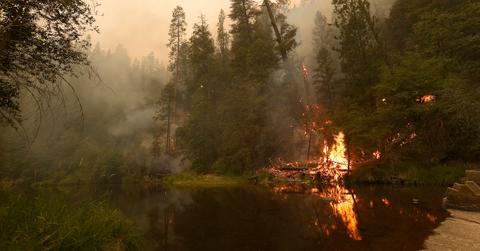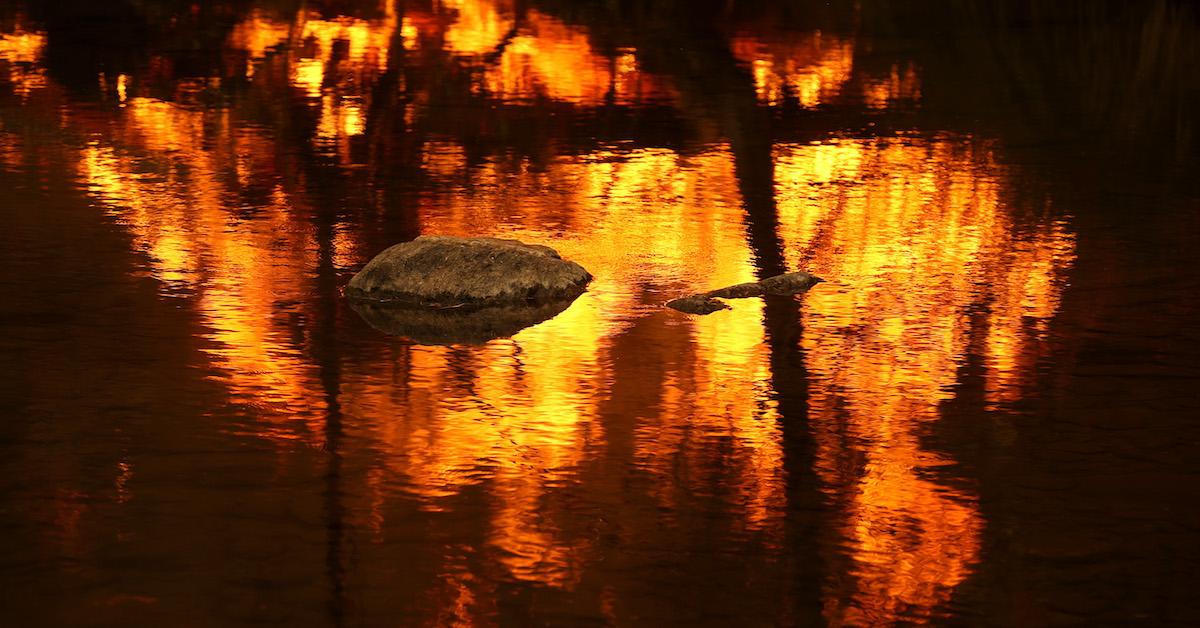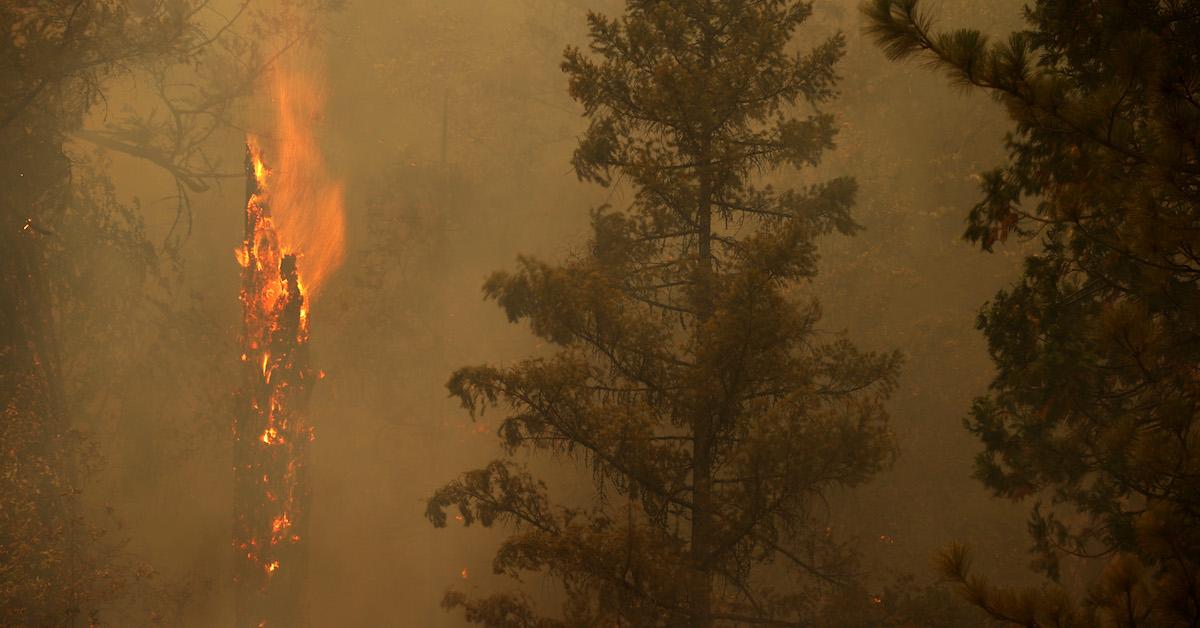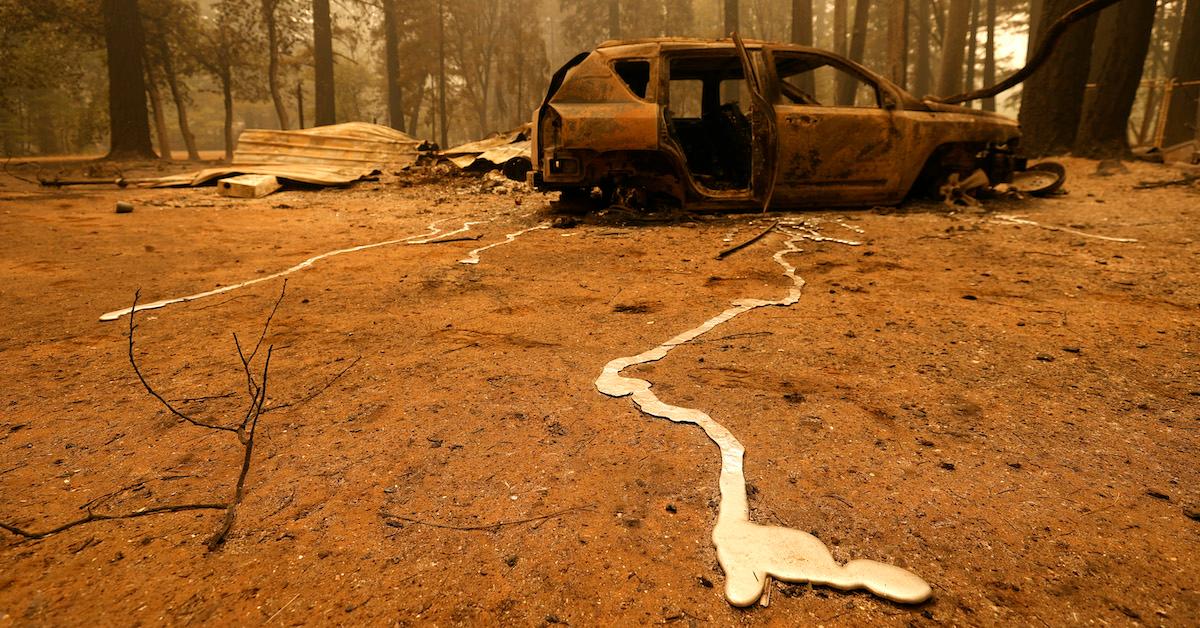River and Dixie Wildfires Spread Through Northern California — What You Need to Know
Published Aug. 5 2021, 12:02 p.m. ET

The Dixie Fire burns along the Feather River on July 26, 2021 near Quincy, Calif.
With heat waves raging in the Pacific Northwest and spreading across the U.S., it’s sadly no surprise that there are wildfires following in their wake. The River Fire and Dixie Fire in Northern California have destroyed homes, property, and hundreds of thousands of acres of land, and thousands of people have been forced to evacuate their homes.
Here are all the basics you need to know about the two devastating wildfires.

Flames are reflected in the Feather River as the Dixie Fire burns in the area on July 26, 2021 near Quincy, Calif.
The River Fire in Northern California has forced evacuations from Colfax and Bear River campground.
On Wednesday, Aug. 4 at around 2 p.m. local time, a wildfire known as the River Fire began to spread in Northern California’s Placer and Nevada counties, as reported by local news outlet KCRA. This primarily affected the town of Colfax, Calif. in Placer County, located northeast of Sacramento, according to Reuters.
Officials forced thousands of people from Placer County's Colfax and Bear River campground to evacuate the area on Wednesday, as per KCRA. As of Thursday morning, the River Fire had burned 2,400 acres of land in the area with no containment, according to Cal Fire (the California Department of Forestry and Fire Protection).
No deaths have been reported as a result of the River Fire as of Thursday morning. You can see a live map of the River Fire in Colfax and the surrounding areas on Cal Fire’s website.

A tree burns as the Dixie Fire moves through the area on July 26, 2021 near Quincy, Calif.

A burned out car sits near a home that was destroyed by the Dixie Fire on July 26, 2021 in Indian Falls, Calif.
The Dixie Fire in Greenville has burned hundreds of thousands of acres of land.
Also on Wednesday, a wildfire known as the Dixie Fire began spreading through the Northern California counties of Butte and Plumas. Residents were promptly ordered to evacuate. According to Cal Fire, the Dixie Fire has burned 322,502 acres of land and is 35 percent contained as of 9:00 a.m. local time on Thursday morning. It is currently the largest fire in California, according to The Guardian.
The town of Greenville, Calif., located in Plumas County in the northern Sierra Nevada, was hit the hardest by the Dixie Fire. As reported by AP News, Greenville is a historic town with a population of just 800 people that existed during California’s Gold Rush era in the mid-1800s. Unfortunately, the fire tore through Greenville destroying various buildings and structures, including a bar, a hotel, a gas station, homes, and even lamp posts, which the fire actually melted, as per SFGate.
Greenville resident Teresa Clark shared to Facebook several videos she took of the fire tearing through her town’s mountains and a football field just before she evacuated, her voice shaking. "Within two hours, our town was gone," Clark said in one of her videos, as per CNN. "We were sitting outside town about a mile away, and you could hear propane tanks just exploding."
Dixie Fire Greenville August 4, 2021
Posted by Teresa J Clark on Wednesday, August 4, 2021
The Dixie Fire had actually been burning for about three weeks before it attacked Greenville on Wednesday; in those three weeks, it had burned more than 435 square miles of land and dozens of homes, AP News reported. During that time, thousands of firefighters worked to put out the fire, but windy conditions fanned the flames and allowed the Dixie Fire to persist.
"We did everything we could," fire spokesman Mitch Matlow told NPR. "Sometimes it's just not enough."
As of publication, no fatalities have been reported from the Dixie Fire.
Wildfires are rarely an accident — they are very much linked to the climate crisis, as well as the recent heat waves and droughts. Here’s our explainer on how climate change fuels wildfires.